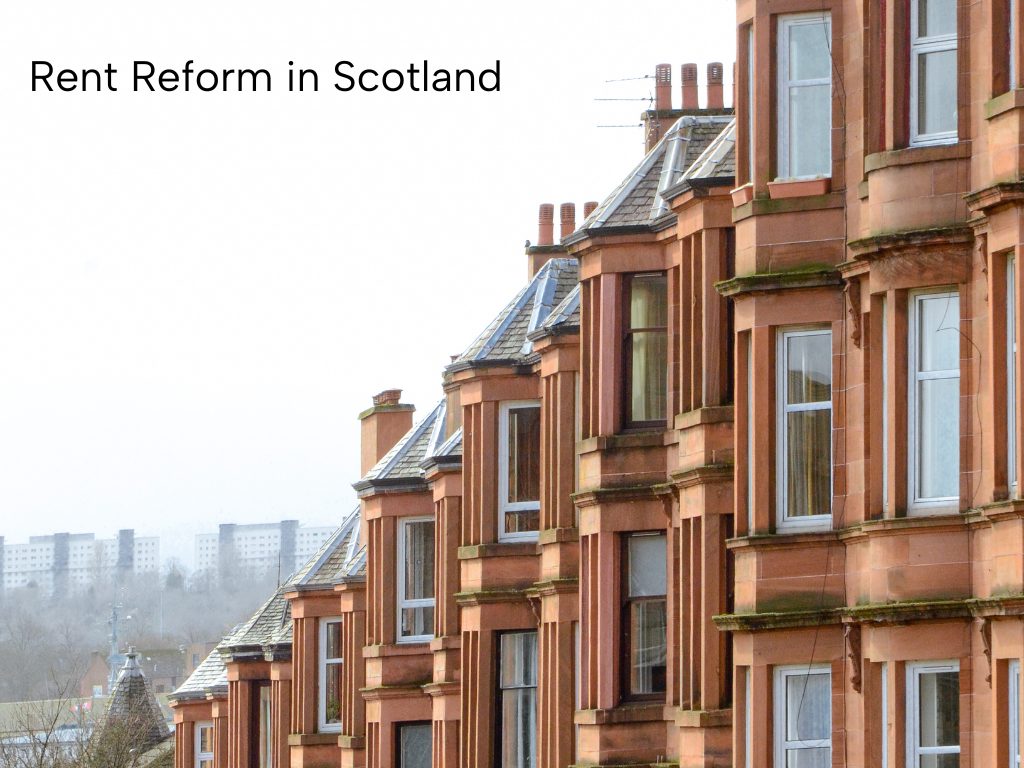In March 2024, the Scottish Government introduced a comprehensive Housing Bill aimed at reforming the private rental sector. This landmark legislation is set to transform how rents are regulated across Scotland, introducing a national rent control system and local Rent Pressure Zones. The bill’s provisions are designed to protect tenants while ensuring a sustainable rental market for landlords.
The Housing Bill 2024 includes several significant measures:
- National Rent Control System: The bill introduces a national framework for rent control, ensuring uniformity across Scotland while allowing for local adaptations.
- Local Rent Pressure Zones: Local councils can designate areas as Rent Pressure Zones, subject to approval by Scottish Ministers. This enables targeted rent control in high-demand areas.
- Annual Rent Increase Cap: Rent increases will be capped annually, including for new tenancies, preventing landlords from circumventing rent controls by frequently changing tenants.
- Exemptions for Improvements: Landlords can apply for exemptions from the rent cap if they make significant improvements to their properties or if the property is new to the market.
- Energy Efficiency and Repair Standards: The bill emphasises enhancing energy efficiency and maintaining high repair standards in rental properties, aiming to improve the overall quality of housing.
Market Impact
The introduction of rent control is being introduced so that it will provide much-needed protection for tenants in a tight housing market whilst preventing sudden and unaffordable rent hikes, however, caution should be taken when implementing such measures, as stringent regulations could deter investment in the rental sector and reduce the supply of rental properties, thus adding further issues to the already impacted ‘housing crisis in Scotland.
Goodbye Patrick Harvie
The political landscape surrounding the Housing Bill has shifted with the Green Party’s reduced influence and the departure of Patrick Harvie. This change will hopefully lead to a more balanced approach to implementing the bill.
Under the new regime, there is potential for policies that encourage both tenant protection and market viability. A balanced approach could involve:
- Ensuring that rent controls are fair and do not discourage landlords from maintaining or expanding their rental portfolios.
- Providing incentives for landlords to improve energy efficiency and repair standards, aligning with broader environmental goals.
- Fostering landlord confidence to maintain and increase the supply of rental housing, critical for meeting demand.
For the Scottish rental market to thrive, the government must foster an environment that balances regulation with market incentives. Ensuring that rent control measures are practical and fair will be key to maintaining landlord investment in the market. Additionally, policies should support the entry of new landlords and encourage investment in rental properties to increase housing supply.
Looking ahead, the success of the Housing Bill will depend on its implementation and the government’s ability to adapt policies in response to market dynamics. Ongoing dialogue within the sector, including tenant groups and landlord associations, will be crucial for refining the bill’s provisions and ensuring that it meets its goals of protecting tenants and sustaining a healthy rental market.
Finally …
The government lacks understanding of the rental sector, actively deters rental investment, and has significantly contributed to the current housing crisis in Scotland.
The bill arrives amid growing concerns about the housing situation across Scotland. Earlier this year, the Scottish government slashed £196m from its affordable housing budget, and quarterly figures released on Tuesday reported the lowest number of housing association starts since 1988.
Four councils—Argyll and Bute, Edinburgh, Fife, and Glasgow—have declared a “housing emergency.” Furthermore, recent data from the Office for National Statistics (ONS) showed that Scotland has experienced the highest rent increases of any UK nation.
This rise has occurred despite ministers introducing temporary legislation in 2022 aimed at capping rents to address the cost of living crisis. The data indicated that average private rents increased by 10.9% in Scotland, 8.8% in England, and 9% in Wales.

